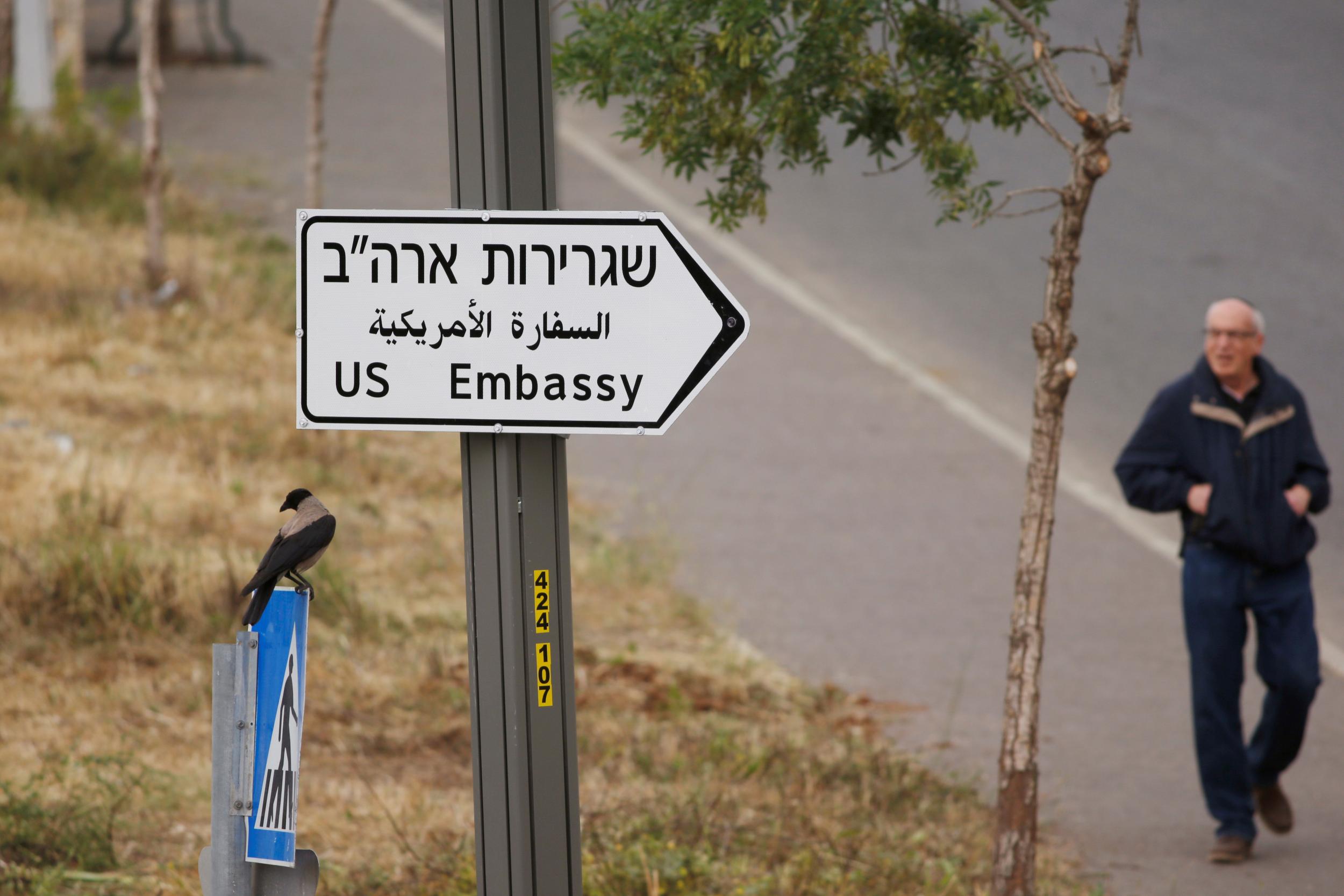Palestinians furious as US merges authority's diplomatic mission in Jerusalem into Israeli embassy
Israeli leaders have lauded the US Secretary of State's announcement as a 'great day for Israel, Jerusalem and the US'

Your support helps us to tell the story
From reproductive rights to climate change to Big Tech, The Independent is on the ground when the story is developing. Whether it's investigating the financials of Elon Musk's pro-Trump PAC or producing our latest documentary, 'The A Word', which shines a light on the American women fighting for reproductive rights, we know how important it is to parse out the facts from the messaging.
At such a critical moment in US history, we need reporters on the ground. Your donation allows us to keep sending journalists to speak to both sides of the story.
The Independent is trusted by Americans across the entire political spectrum. And unlike many other quality news outlets, we choose not to lock Americans out of our reporting and analysis with paywalls. We believe quality journalism should be available to everyone, paid for by those who can afford it.
Your support makes all the difference.The United States has placed its main diplomatic mission to the Palestinians under the authority of the US embassy in Israel, a downgrade that has sparked uproar among the West Bank leadership.
US secretary of state Mike Pompeo said the consulate general, which is currently a separate office in Jerusalem, would be closed down and replaced by a new Palestinian Affairs Unit inside their embassy which the US controversially moved from Tel Aviv to Jerusalem earlier this year.
The move would effectively mean the Palestinians are forced to recognise the US’s decision to label Jerusalem as the capital of Israel. It would also make David Friedman, the US ambassador to Israel, who is hated by Palestinians over his support for Israeli settlements in the West Bank, the main interlocutor with the Palestinian leadership.
It follows a series of decisions by President Donald Trump that the Palestinians say proves the Americans have sided with Israel and are no longer objective mediators.
Mr Pompeo defended the change, saying that it would be more “efficient”.
“This decision is driven by our global efforts to improve the efficiency and effectiveness of our operations. It does not signal a change of US policy,” he said.
He added the United States “continues to take no position” on how any peace deal between the Israelis and Palestinians would take shape.
This decision has nothing to do with peace. It complicates peace and makes it impossible
In Israel, the move was celebrated.
Michael Oren, deputy minister for diplomacy and a former Israeli ambassador to the US, said it was “great day for Israel, Jerusalem and the US”.
“Closing the US consulate in Jerusalem and transferring its responsibilities to the embassy ends the last vestige of American support for the city’s division. Israel is deeply grateful.” he wrote on Twitter.
But it sparked fury among the Palestinian leadership that dismissed the decision as part of a plan to “reward” Israel.
Saeb Erekat, Palestinian’s chief negotiator said “It has a lot to do with pleasing an ideological US team that is willing to disband the foundations of American foreign policy, and of the international system, in order to reward Israeli violations and crimes.”
“The Trump administration is part of the problem, not part of the solution,” he added.
Nabil Shaath, an adviser to Palestinian President Mahmoud Abbas, said it was a “very bad decision” that violated past agreements and continued Mr Trump’s decision to recognise Jerusalem as Israel’s capital.
“Now, he is cutting the last connection he is said to have with the Palestinian people. He is practically saying Jerusalem is for Israel. This decision has nothing to do with peace. It complicates peace and makes it impossible,” he said.
Mr Trump faced international backlash for a December decision to move the US embassy from Tel Aviv to Jerusalem, recognising it as Israel’s capital.
The contested city is claimed by both the Palestinians and Israelis. Most of the international community, including the United Kingdom and the United Nations, believe its status should be decided by both sides in a final peace agreement.
Shortly afterwards, Mr Trump slashed and then ultimately ended US funding to the UN agency for Palestinian refugees, as well as most of the country’s bilateral assistance to the Palestinians, leaving a massive funding shortfall.
It comes amid mounting tensions between Israel and Gaza over months of protests and clashes at the borders. Over 180 Palestinians have been killed by Israeli forces, who have defended their actions, saying the protesters had been attacking the border fence and flying incendiary kites at Israel.
Peace talks spluttered to a halt in 2014.
Join our commenting forum
Join thought-provoking conversations, follow other Independent readers and see their replies
Comments